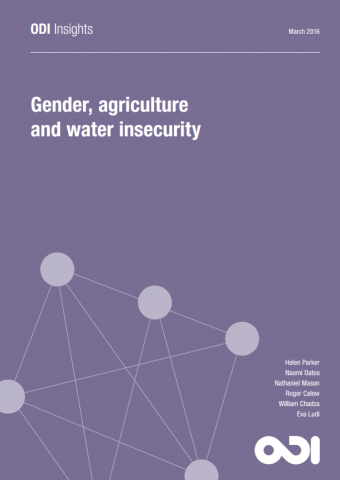Gender, Agriculture and Water Insecurity


This paper explains how and why improved water management on the farm matters for women and girls, and what can be done to better support opportunities for them, as well as for men and boys, in the face of climate change. It consolidates existing academic and policy research around climate resilience, water security, and gender, and presents new evidence from Malawi and Ethiopia. Further, it analyses how men and women in rural areas are differently affected by, and adopt different coping strategies to, climate variability and shocks, and offers recommendations to redress the balance.
According to the report, women are disproportionately negatively affected by water insecurity associated with climate variability. The authors identify three areas where gender-focused programming needs to address the unique vulnerabilities of women to water security:
i) women are often at the pinch point of water-related tasks in the home and on the farm, with pressure intensifying around seasonal periods of scarcity in many developing countries;
ii) compared to men, women may have less access to or control of assets that can be used to buffer against the effects of rainfall variability; iii) women often have fewer opportunities to pursue off-farm work or migrate to urban areas as a temporary coping strategy for seasonal food and income shortages, or for shortages caused by droughts and floods.
Overseas Development Institute (ODI), 2016
Online Report
http://www.odi.org/sites/odi.org.uk/files/resource-documents/women_and_water_report_web.pdf
